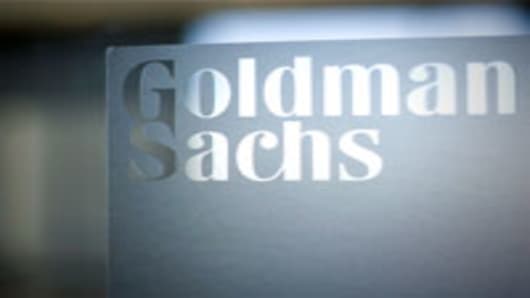It might sound surprising to a skeptical public, but culture was always a vital part of Goldman Sachs’s success. It revolved around teamwork, integrity, a spirit of humility, and always doing right by our clients. The culture was the secret sauce that made this place great and allowed us to earn our clients’ trust for 143 years. It wasn’t just about making money; this alone will not sustain a firm for so long. It had something to do with pride and belief in the organization. I am sad to say that I look around today and see virtually no trace of the culture that made me love working for this firm for many years. I no longer have the pride, or the belief.
This cuts right to Goldman’s self-image. The firm has always prided itself as having a unique culture—and touted this culture to both potential employees and potential clients. It forms a crucial part of Goldman’s client sales message and recruiting message.
Claiming that Goldman has lost its culture is like driving a stake toward the heart of firm.
Smith says that the interests of Goldman’s clients are “sidelined” in the interest of making money for the firm. Employees are rewarded for selling clients “the stocks or other products that we are trying to get rid of because they are not seen as having a lot of potential profit,” or convincing them to trade “whatever will bring the biggest profit to Goldman.”
“Call me old-fashioned, but I don’t like selling my clients a product that is wrong for them,” he writes.
Goldman is now scrambling to reassure clients and its own employees that Smith’s claims do not reflect the truth about the firm.
“In our view, we will only be successful if our clients are successful,” Goldman said in a statement today. “This fundamental truth lies at the heart of how we conduct ourselves.”
Smith’s Op-Ed comes just two weeks after a Delaware judge blasted Goldman for conflicts of interest, in a deal where it stands to earn a $20 million fee for a merger where its long-time client was acquired by a company in which Goldman has a large ownership stake. It follows a string of public-relations and legal setbacks for Goldman, including a lawsuit filed by the Securitities and Exchange Commission that resulted in Goldman paying a record $550 million, and Matt Taibbi’s famous characterization of Goldman as a multi-tentacled, aquatic blood-sucker.
A year ago, Goldman concluded an internal review by its “Business Standards Committee” that resulted in an internal restructuring intended to address client concerns that the firm was departing from “its traditional values and business principles given the changes to the firm’s size.” The word “client” appears 372 times in the 63-page report. But that report and the changes that followed have been criticized as “banal” and “far from overwhelming.”
Privately, some of Goldman's defenders have claimed over the past several years that the firm has been a victim of its own success. They believe that the firm’s success at navigating the financial crisis more ably than its rivals provoked attacks based on envy and ignorance. Others, however, say this attitude is an indication of a dangerous level of ego-mania at Goldman.
“They think of everyone else as ‘muppets,’” one former Goldman client told me, echoing the word Smith says Goldman employees regularly use to describe clients.
Smith’s departure is the latest in a long series of high-profile exits from the firm. After several years in which an unusually low number of partners left the firm, the past year or so has seen a marked uptick in number of Goldman partners leaving. Some say this is a result of a tougher business and regulatory environment, plus lower compensation levels.
A cynic could even wonder if Smith himself would have penned such an acid piece if Goldman was still paying the kinds of bonuses it paid out before the crisis. Some say it is easier to notice a cultural decline when the money dries up.
“This guy was there in 2006, right? He’s claiming that the culture wasn’t as toxic then? I call bulls**t. He just didn’t mind when he was getting paid,” said one former Goldman employee, who worked in the New York office, when asked about Smith’s Op-Ed.
Follow John on Twitter. (Market and financial news, adventures in New York City, plus whatever is on his mind.) You can email him at john.carney@nbcuni.com.
We also have two NetNet Twitter feeds. Follow CNBCnetnet for the best of the days posts, including breaking news. Follow NetNetDigest for a feed of every single post each day.
You can also be our friend on Facebook. Or subscribe to John's Facebook page.
We're on Google Plus too! Click here and add NetNet to your circles. And here is John's Google+ page.
Questions? Comments? Tips? Email us atNetNet@cnbc.comor send a text message to: 9170740-8477.
Call us at 201-735-4638.



